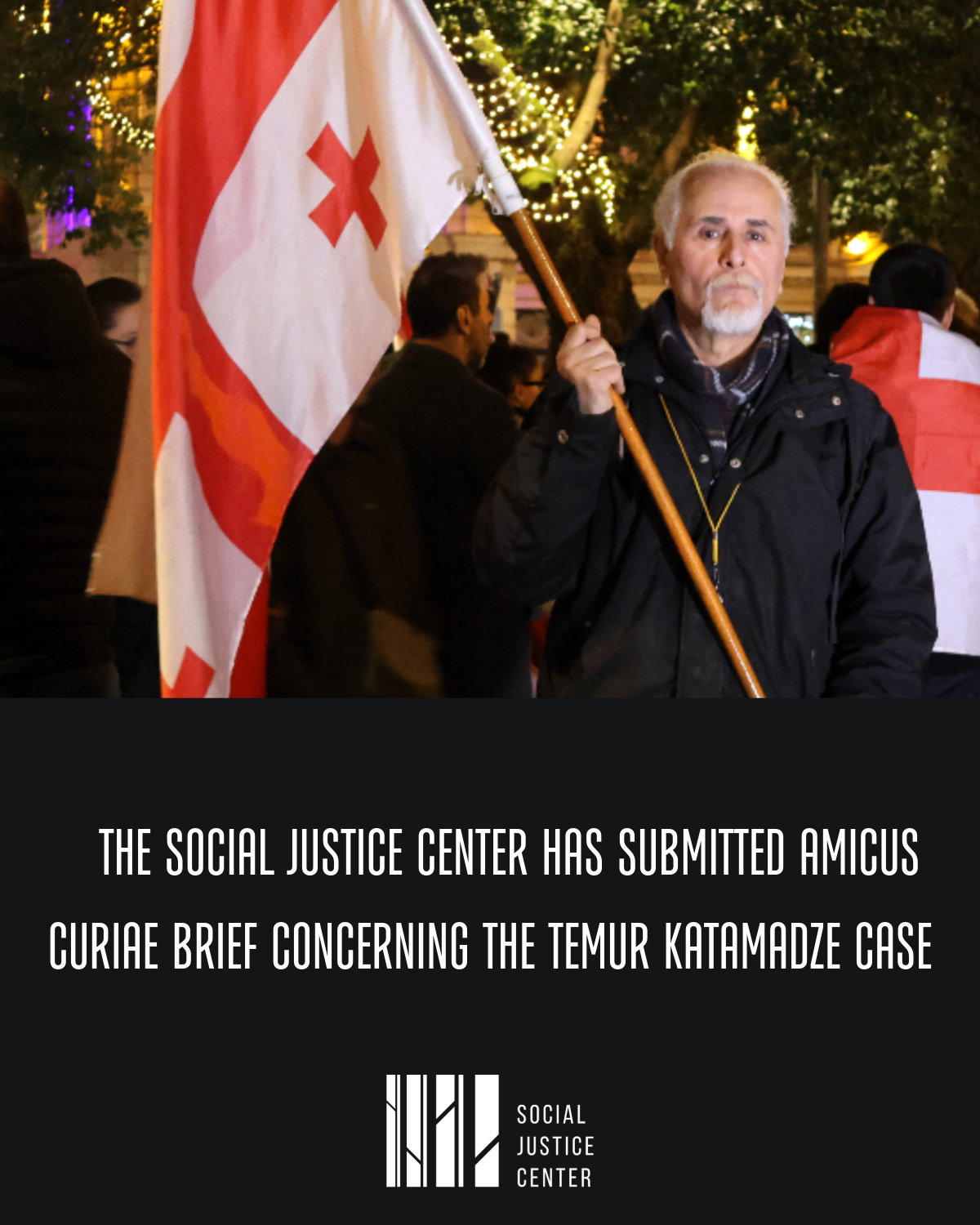საერთო ცხელი ხაზი +995 577 07 05 63


The Social Justice Center has submitted an amicus curiae brief to the Tbilisi City Court in the case of Temur Katamadze (officially known as Gaffar Yilmaz) regarding granting him international protection in Georgia.
The document examines the specific circumstances of Temur Katamadze’s case, the human rights situation in Turkey, and the risks of torture and inhumane treatment, as well as arbitrary and discriminatory persecution, in the event of his expulsion from Georgia. The amicus curiae brief presents the latest reports and assessments from international organizations on Turkey’s human rights situation. It is crucial for the court to carefully consider the relevant international and domestic legal standards, along with the broader political context of the case.
Temur Katamadze is a descendant of the Muhajirs and an active leader, member, and activist[1] of “Chveneburebi”, an organization established by ethnic Georgians working in Turkey.[2]
Temur Katamadze arrived in Georgia in 2012 and has remained in the country ever since. Until 2019, he resided in Georgia under a work visa; however, in 2020, his request for a visa extension was denied. Throughout his stay, he made three attempts (in 2012, 2015, and 2019) to obtain Georgian citizenship, but each application was rejected by the Public Service Development Agency. Following the expiration of his residence permit, he sought to obtain citizenship through the court system. The Tbilisi City Court has been reviewing his case since 2019, but no resolution has been reached yet.
Throughout this period, the issue of Temur Katamadze’s expulsion from Georgia was never raised. However, following his arbitrary and unlawful administrative detention by local police and a five-day prison sentence imposed for his active participation in protests in Batumi, he was re-arrested just minutes after his release from the temporary detention isolator - this time on charges of violating immigration rules.[3]
Case materials indicate that a Turkish arrest warrant has been issued against Temur Katamadze. He suspects that this warrant may be linked to his friendship with members of the Gülen movement in Georgia. Although he has never been a member of the movement, numerous documented cases of persecution and harassment against members of the Gülen movement in Turkey demonstrate that these risks are real and require a thorough examination by the court.
According to our submitted amicus curiae brief, it is crucial for the court to thoroughly evaluate:
The Social Justice Center hopes that the court will consider the arguments presented in the amicus curiae brief and ensure a fair and objective review of the case.
[1] Radio Liberty, https://www.radiotavisupleba.ge/a/33336969.html.
[2] Radio Liberty, https://www.radiotavisupleba.ge/a/თემურ-ქათამაძის-ბრძოლა-საქართველოს-მოქალაქეობის-მისაღებად/33327380.html.
[3] The Statement of the Social Justice Center, https://socialjustice.org.ge/ka/products/sotsialuri-samartlianobis-tsentri-solidarobas-utskhadebs-batumis-protestebis-daughalav-medroshes-temur-katamadzes.
The website accessibility instruction